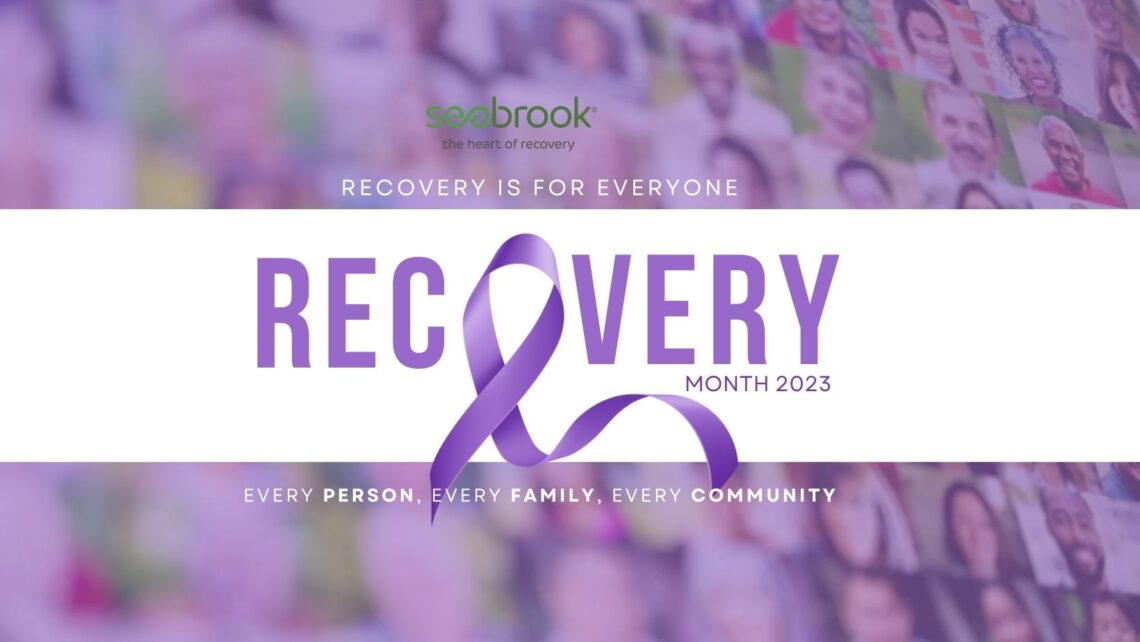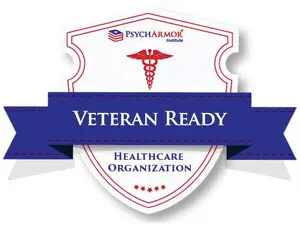National Recovery Month and the Power of Resilience
Choosing a healthier way of life can sometimes be a lonely path, and this is often true in addiction recovery. For far too long, people battled this health crisis behind closed doors while individuals with other diseases participated in public awareness events. National Recovery Month aims to change that by celebrating the power of resilience and the strength found among others in sobriety.
What Is National Recovery Month?
The Substance Abuse and Mental Health Services Administration (SAMHSA) initiated National Recovery Month in 1989 “to promote and support new evidence-based treatment and recovery practices, the nation’s strong and proud recovery community, and the dedication of service providers and communities who make recovery in all its forms possible.”
Each September, this national observance increases awareness about recovery from substance abuse disorder (SUD) and alcohol use disorder (AUD), and better management of mental health issues. There are numerous partners in the endeavor, including rehabilitation centers across the country, the Centers for Disease Control and Prevention, the Faces and Voices of Recovery, and others.
Statistics indicate there are nearly 60 million Americans currently in recovery from SUD, AUD, and mental health conditions. Recovery is a personal journey, but through efforts such as National Recovery Month, it doesn’t have to be a solitary one. Dr. Miriam E. Delphin-Rittmon, the assistant secretary for mental health and substance abuse for the U.S. Department of Health and Human Services, shares more goals for this important venture.
The Power of Resilience in Recovery
Managing any type of disease—especially an incurable brain disease like addiction—requires focused diligence for effective results.
For example, SAMHSA shares the recovery story of David, who struggled with prescription opiate addiction. He and his wife, Tanya, didn’t want to “ask friends or family for help because David feels ashamed. He’s grown up believing that Black men don’t need help, but Tanya convinces him to open up to their pastor.” He was successful at finally getting into treatment, but relapsed more than once. But through dedicated counseling and peer support, he manages to maintain sobriety and live a more fulfilling life.
As National Recovery Month states, “recovery is real.” However, just as someone with diabetes or heart disease needs to stay resilient in their approach to stay healthy, people in recovery also require a certain fortitude to learn why SUD or AUD developed and incorporate key methods for continued sobriety.
How do you develop better resilience? Here are some suggestions.
Cognitive behavioral therapy
This well-established therapeutic approach helps individuals identify and reframe negative thought patterns. It equips people with practical skills to manage stress, anxiety, and depression by altering how they perceive and respond to challenging situations.
Social support networks
Strong social connections are a cornerstone of resilience. Whether through sobriety circles, a spiritual fellowship, or some other revitalizing form of human connection, building and maintaining healthy relationships provides emotional support during tough times. Social support is also associated with lower levels of stress and improved mental health.
Psychological flexibility
Psychological flexibility, as promoted in Acceptance and Commitment Therapy, involves being open to experiencing difficult emotions and thoughts while still pursuing values and goals. It helps individuals adapt to change and adversity more effectively.
Education and training
Participating in programs and workshops that teach resilience-building skills can be highly effective. For example, individuals and their families and friends can use SAMHSA’s Find Support resource portal to learn more about coping mechanisms.
Mindfulness meditation
Some studies indicate that mindfulness meditation reduces stress, anxiety, and depression while enhancing emotional regulation and overall psychological well-being. Practicing mindfulness helps individuals become more aware of their thoughts and emotions and thus more equipped to cope with adversity.
Positive psychology
Positive psychology interventions focus on cultivating positive emotions, strengths, and a sense of purpose. Activities such as gratitude journaling, acts of kindness, and setting achievable goals can enhance resilience and overall life satisfaction.
Emotional regulation
Learning to manage and regulate emotions is crucial for resilience. Techniques like emotional awareness, emotional expression, and emotional regulation strategies can help individuals navigate challenging emotions effectively.
Healthy lifestyle choices
A balanced diet, adequate sleep, regular physical activity, and avoiding excessive alcohol or substance use all contribute to better emotional and physical well-being. These lifestyle choices support the body’s ability to handle stress.
Problem-solving skills
Resilient individuals are often good problem solvers. They can break down complex issues into manageable parts and develop effective strategies to address them. Problem-solving skills can be learned and improved over time.
Self-Compassion
Self-compassion involves treating oneself with kindness and understanding during difficult times. Research suggests that self-compassion is associated with improved mental health outcomes and greater resilience.
Remember: building resilience is a gradual process that varies from person to person. It’s essential to find the methods and strategies that work best for you and to seek professional guidance when needed, especially if you’re dealing with significant stressors or mental health challenges.
Board-Certified Professionals at Seabrook Are Ready to Help You
Although National Recovery Month may provide an informative catalyst for choosing better health, any time is the best time to reach out to one of Seabrook’s four award-winning New Jersey treatment centers. Seabrook’s alcohol and drug rehab program emphasizes whole-family recovery, clinically effective treatment, and a range of holistic therapies that renew your soul.




